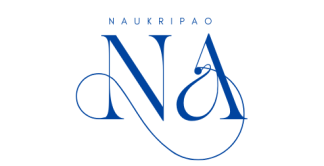
Introduction to Business Letters
Business letters are formal documents used by companies and individuals to communicate with each other in a professional context. They serve as a medium for expressing intent, discussing business operations, and maintaining records of communications. These letters are crucial in creating and maintaining a positive business image and are used for various purposes, such as proposals, requests, responses, and even for resignation. In this blog, we will delve into the purpose and structure of business letters, along with providing samples to understand the nuances better.
Importance of Business Letters
Business letters are essential for several reasons:
- Professional Communication: They offer a formal way to express ideas and intentions, contributing to a professional image.
- Record Keeping: Letters serve as a tangible record of agreements, discussions, and transactions.
- Formal Documentation: They are used to document important business decisions and communications.
Read How to Write a Sales Letter? (With Format and Examples)
Purpose of Business Letters
The purpose of a business letter can vary widely depending on the context and need. Common uses include:
- Business Proposals: Letters may outline potential business opportunities or partnerships.
- Business Correspondence: They are used for everyday communication, such as sending invoices or responding to queries.
- Job resignation: A formal way to notify an employer of an employee’s decision to leave the company.
- Apology or Acknowledgment: Letters can be used to express regret or acknowledge customer feedback.
Structure of a Business Letter
To ensure clarity and efficiency, business letters should be structured in a specific format. This standardization helps in maintaining professionalism and ensures that the message is conveyed effectively.
Components of a Business Letter
- Heading or Letterhead: This includes the company logo and address.
- Date: Indicates when the letter was written.
- Recipient’s Address: The address of the person or organization receiving the letter.
- Salutation: A formal greeting such as “Dear Mr./Ms./Mrs./Dr.” followed by the recipient’s name or title.
- Body: This contains the main message or content of the letter.
- Introduction: Introduces the purpose of the letter.
- Main Body: Expands on the idea or request.
- Conclusion: Summarizes the key points and may include a call to action.
- Closing: A polite way to end the letter, such as “Yours sincerely” or “Best regards.”
- Signature Block: Includes the sender’s name, title, and contact information.
- Enclosures: A list of any additional documents included with the letter.
Samples of Business Letters
Business Letter Sample: Application for a Job
Here is an example of a business letter for applying for a job:
[Your Name]
[Your Address]
[City, State, Pin Code]
[Email Address]
[Phone Number]
[Date]
[Recipient’s Name]
[Recipient’s Title]
[Company Name]
[Company Address]
[City, State, Pin Code]
Subject: Application for [Position]
Dear [Recipient’s Name],
I am writing to express my interest in the [Position] role at [Company Name] as advertised on [Source of Job Listing]. With [number] years of experience in [industry/field], I am confident that my skills align with the requirements of this position.
My qualifications include [degrees or certifications], and I possess strong [key skills relevant to the job]. I am particularly drawn to [Company Name] due to its commitment to [aspect of company’s mission or values].
Thank you for considering my application. I would be delighted to discuss my qualifications further during an interview.
Yours sincerely,
[Your Signature]
[Your Name]
[Your Contact Information]
Business Letter Sample: Resignation
Here is a sample of a business letter for resignation:
[Your Name]
[Your Address]
[City, State, Pin Code]
[Email Address]
[Phone Number]
[Date]
[Recipient’s Name]
[Recipient’s Title]
[Company Name]
[Company Address]
[City, State, Pin Code]
Subject: Notification of Resignation
Dear [Recipient’s Name],
Please accept this letter as formal notice of my resignation from my position as [Position] at [Company Name], effective [Date of Last Day of Work]. I am grateful for the opportunities I have had while working here and appreciate the experience gained.
I will ensure a smooth transition of my responsibilities during my remaining time at the company.
Thank you for your understanding.
Yours sincerely,
[Your Signature]
[Your Name]
[Your Contact Information]
Business Letter Sample: General Correspondence
For general business communication, such as requesting information or clarification:
[Your Name]
[Your Address]
[City, State, Pin Code]
[Email Address]
[Phone Number]
[Date]
[Recipient’s Name]
[Recipient’s Title]
[Company Name]
[Company Address]
[City, State, Pin Code]
Subject: Request for Information
Dear [Recipient’s Name],
I hope this message finds you well. I am writing to inquire about [specific information or product/service]. Could you kindly provide more details regarding [specific query or request]?
Thank you for your time and assistance in this matter.
Best regards,
[Your Signature]
[Your Name]
[Your Contact Information]
Crafting Effective Business Letters
Tips for Writing Successful Business Letters
- Be Clear and Concise: Ensure your message is straightforward and easy to understand.
- Use Proper Grammar and Spelling: Avoid mistakes to maintain professionalism.
- Personalize: Address the recipient by name if possible.
- Use a Professional Tone: Avoid informal language and slang.
- Proofread: Review the letter for errors before sending it.
Business Letter Format: Key Considerations
- Use Standard Business Letter Format: Follow the structure outlined above.
- Use Company Letterhead: If available, use the company letterhead to reinforce your brand identity.
- Keep it Professional: Maintain a professional tone throughout.
Common Types of Business Letters
- Formal Letters: Used for official communications like job applications or complaints.
- Informal Business Letters: Less formal but still professional, used for routine communications.
- Memorandum (Memo): A concise form of business letter used for internal communication.
Conclusion
Business letters, including business letter resignation documents, are essential tools for maintaining professional communication in the corporate world. Understanding the business letter format is crucial for ensuring that your messages are clear, effective, and well-received. By following the structure and tips outlined in this guide, you can create impactful business letters that help you achieve your goals. Whether you are applying for a job, resigning, or reaching out for business opportunities, knowing how to craft a proper business letter is a vital skill in today’s professional landscape.
